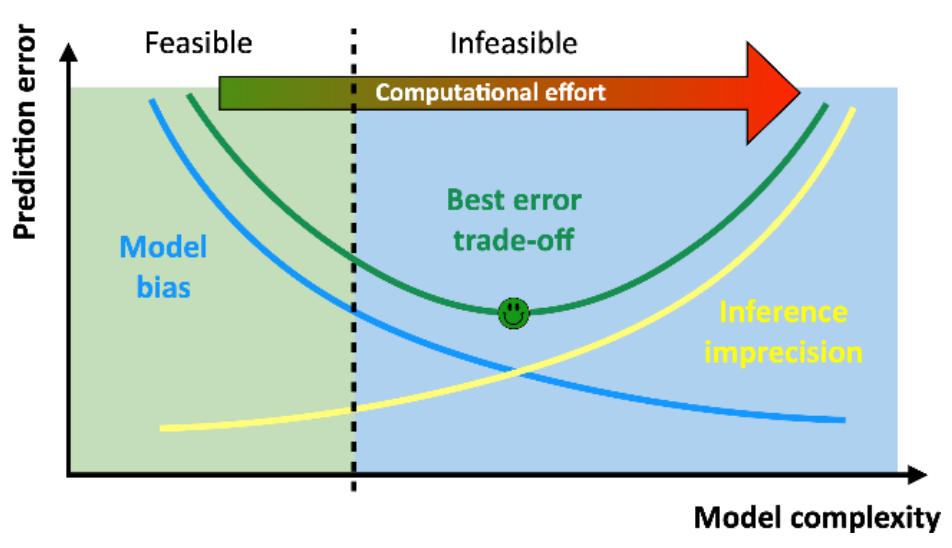Research Project: DAMOCLES: Data-Augmented Modeling Of Constitutive Laws for Engineering Systems
Description

The modeling of complex engineering systems is highly challenging. Physics-based models require a cautious application of constitutive assumptions, whereas data-based models require vast amounts of data. DAMOCLES targets a breakthrough in the constitutive modeling of such systems in different physical domains by developing a unified multi-tool framework that combines the favorable characteristics of physics-based and data-based approaches.
The core step of DAMOCLES is to merge the state of the art in port-Hamiltonian Neural Networks, Robust Bayesian Uncertainty Quantification and Evolutionary Optimization to cover the entire spectrum from purely data-driven to completely physics-based modeling. The challenges are tied to data-availability. Flexible, data-driven approaches are available for data-rich cases, but these lack good generalization properties due to being physics-agnostic. For data-scant cases, existing approaches for the training and calibration of physics-based models are unreliable.
DAMOCLES is an EAISI EMDAIR Project involving the Departments of Mathematics & Computer Science, Mechanical Engineering, and Electrical Engeneering.
The DAI cluster is involved in DAMOCLES Work Package 2, Robust Bayesian Uncertainty Quantification. Its main research question is: When can we feasibly specify the most complex constitutive model for which the data provides evidence? And, if the best trade-off is computationally infeasible with the state of the art, can robust uncertainty models and efficient approximate inference techniques be developed to make it feasible?
Details
- Principal Investigator
-
 Erik Quaeghebeur
Erik Quaeghebeur
- Involved members:
-
 Rodrigo Lima De Souza E Silva
Rodrigo Lima De Souza E Silva
- Link
- Learn more